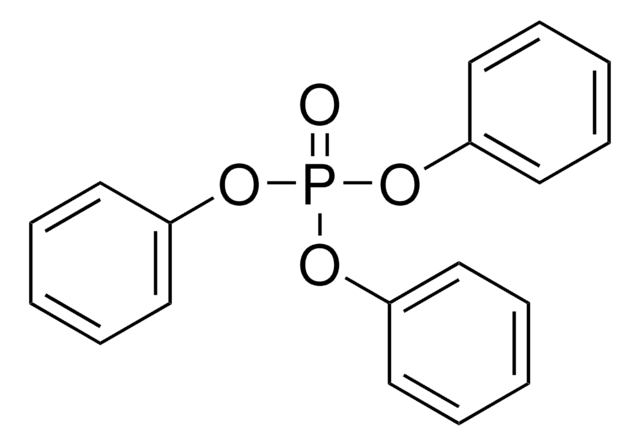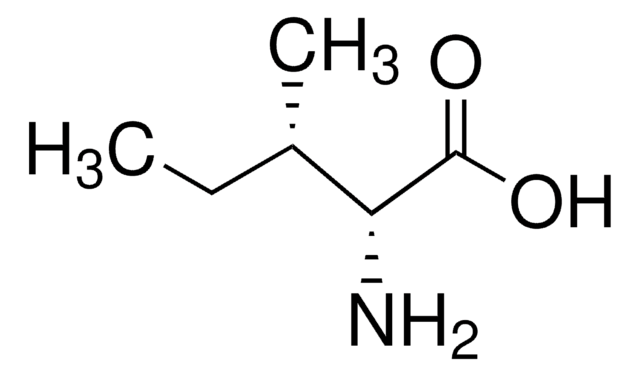27505
D-Citrulline
≥99.0%, for peptide synthesis
Synonym(s):
(R)-2-Amino-5-ureidopentanoic acid
Sign Into View Organizational & Contract Pricing
All Photos(1)
About This Item
Empirical Formula (Hill Notation):
C6H13N3O3
CAS Number:
Molecular Weight:
175.19
Beilstein:
1725415
MDL number:
UNSPSC Code:
12352209
PubChem Substance ID:
NACRES:
NA.22
Recommended Products
product name
D-Citrulline, ≥99.0%
Quality Level
Assay
≥99.0%
form
powder
optical activity
[α]20/D −20.5±2.0°, c = 2% in 1 M HCl
reaction suitability
reaction type: solution phase peptide synthesis
application(s)
peptide synthesis
storage temp.
−20°C
SMILES string
N[C@H](CCCNC(N)=O)C(O)=O
InChI
1S/C6H13N3O3/c7-4(5(10)11)2-1-3-9-6(8)12/h4H,1-3,7H2,(H,10,11)(H3,8,9,12)/t4-/m1/s1
InChI key
RHGKLRLOHDJJDR-SCSAIBSYSA-N
Storage Class Code
11 - Combustible Solids
WGK
WGK 3
Flash Point(F)
Not applicable
Flash Point(C)
Not applicable
Personal Protective Equipment
dust mask type N95 (US), Eyeshields, Gloves
Choose from one of the most recent versions:
Already Own This Product?
Find documentation for the products that you have recently purchased in the Document Library.
Nikhil Vadhavkar et al.
Radiation research, 182(3), 273-281 (2014-07-31)
In contrast to the classic view of static DNA double-strand breaks (DSBs) being repaired at the site of damage, we hypothesize that DSBs move and merge with each other over large distances (μm). As X-ray dose increases, the probability of
Sylvain V Costes et al.
PLoS computational biology, 3(8), e155-e155 (2007-08-07)
Several proteins involved in the response to DNA double strand breaks (DSB) form microscopically visible nuclear domains, or foci, after exposure to ionizing radiation. Radiation-induced foci (RIF) are believed to be located where DNA damage occurs. To test this assumption
S V Costes et al.
Mutation research, 704(1-3), 78-87 (2010-01-12)
DNA damage sensing proteins have been shown to localize to the sites of DNA double strand breaks (DSB) within seconds to minutes following ionizing radiation (IR) exposure, resulting in the formation of microscopically visible nuclear domains referred to as radiation-induced
Our team of scientists has experience in all areas of research including Life Science, Material Science, Chemical Synthesis, Chromatography, Analytical and many others.
Contact Technical Service




